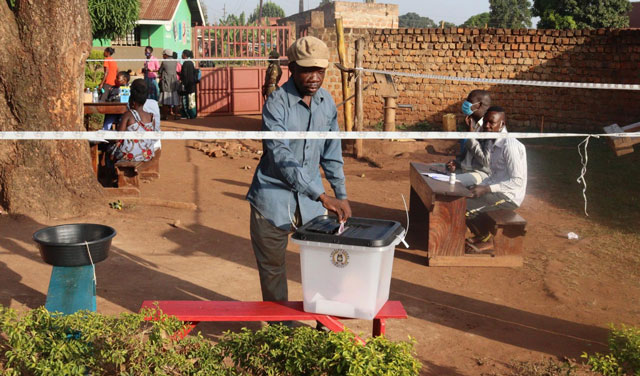
Gulu, Uganda | THE INDEPENDENT | Intimidation and violence have been cited as some of the reasons why voters in Gulu shunned the just concluded general election. According to the Electoral Commission millions of Ugandans did not participate in the elections to vote for a President, Members of Parliament and District Local Council leaders when the country went to the polls between January and February.
The newly elevated Gulu City was among the areas with the lowest voter turn up in the country with only 34,916 people participating in the exercise, out of the 101,401 registered voters from 188 polling stations. This is a drastic decline from the 101,588 voters who participated in the process from the same area in 2016.
The other areas that had a low voter turn up included Amuru district with only 38,121 participants out of 87,122 registered voters, Arua City, with 77,968 out of 170,066 voters, and Jinja City with 71,045 out of 154,750. The capital Kampala also had only 550,604 out of 1,280,409 registered voters participating in the polls.
But many of those who never voted told URN that they were living in fear having been intimidated by opponents in the period that preceded the election. Others have said that the violence that marred the campaign period affected their faith in the exercise, while several others say they were constrained by restrictions imposed to control the spread of coronavirus disease. However, a sizeable number was frustrated by the late arrival of polling materials and the faulty biometric machines.
Jane Apiyo, a voter at Layibi Central Primary School polling station says that although voting was supposed to commence by 7 a.m., there was no activity by midday and the people who had converged lost patience and left the station. Here, only 198 out of 706 registered voters participated in the exercise.
Justine Oryem, another voter at Pece War Memorial polling station says that his name was missing ‘s n the voter’s register. At this polling station, out of the 336 registered voters, only 117 turned up.
At St. Jude Primary School polling station in Gulu City West Division, of the 719 registered voter population, only 249 turned up. Patrick Oola, a voter here blamed the trend on intimidation of voters by security personnel and the brutality that scared many legible voters.
According to Betty Aol Ocan, the Leader of Opposition in Parliament, hundreds of voters boycotted the elections because of a lack of confidence in Uganda’s democratic processes under the ruling National Resistance Movement government.
Only 33,602 of the total 101,401 voters cast their votes for the Gulu City Woman MP race that attracted seven competitors. The overall winner, Aol garnered 14,706 votes against her close rival Jolly Grace Laker Andruville Okot, a candidate for the opposition Democratic Party who had only 10,458 votes.
Norbert Mao, the Democratic Party (DP) Presidential candidate attributed the anomaly to incompetence and malice by the Electoral Commission. He argued that the EC deliberately delivered polling materials late in areas perceived to be a stronghold for the opposition. At Holy Rosary Primary School polling station where Mao voted from, there were only 170 voters who turned up out of 589 voters on the register.
However, Benson Obette, the Gulu City Returning Officer rubbished the claims as baseless and unfounded. He explained that voting is voluntary and attributed the low turn-up to people who could have relocated their per cent stations from Gulu due to several factors.
The incumbent President Yoweri Kaguta Museveni of the National Resistance Movement party was declared by the EC as the winner of the January polls retaining his seat for the sixth consecutive term since 1996 after she reaped 58.64 per cent, beating 10 of his other competitors.
*******
URN
 The Independent Uganda: You get the Truth we Pay the Price
The Independent Uganda: You get the Truth we Pay the Price


